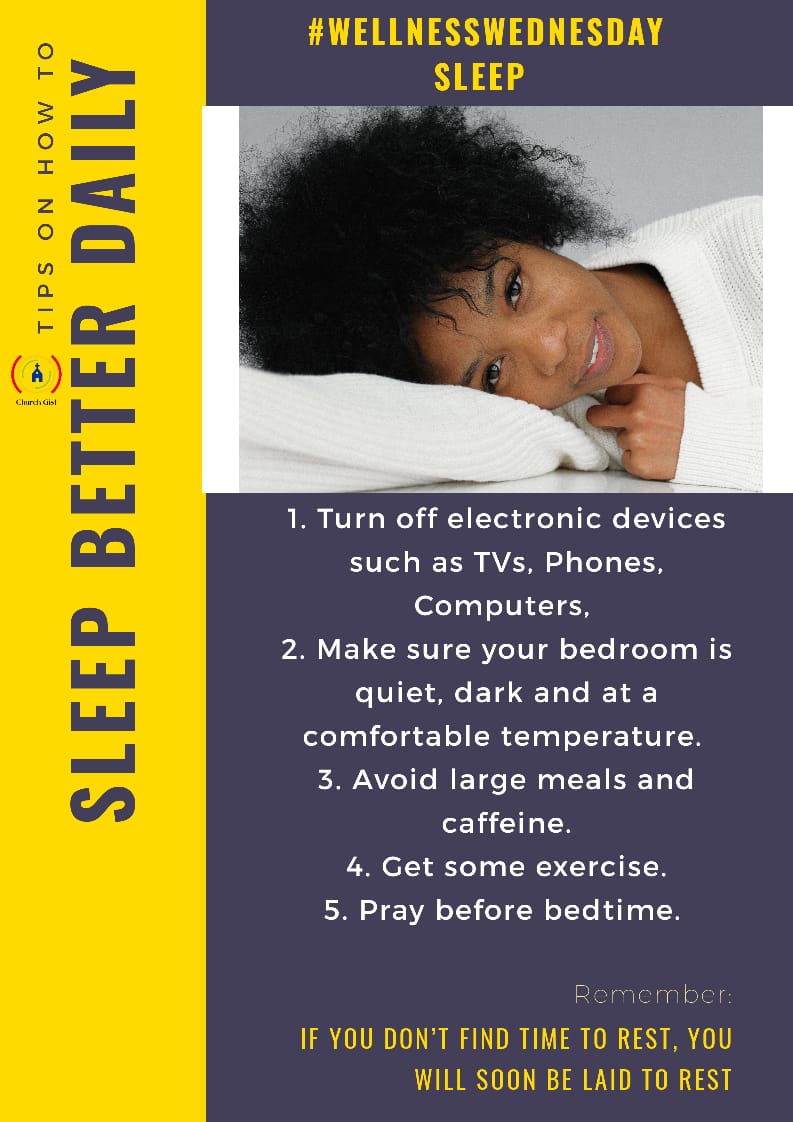“Sleep is not a distraction to your life, it is part of life. Rest is proof of your trust in God. If you cannot go to sleep, it is proof of a lack of trust in God. If you refuse to rest when God tells you to rest, you may be too tired to work when God says it is time to work.” – Pastor Sam Adeyemi
As much as God is interested in our spiritual wellbeing, He also places importance on our physical wellbeing and created a pattern for rest and rejuvenation via sleeping because He is the only Almighty God that doesn’t sleep nor slumber.
Hence it is of paramount importance to consciously practice healthy sleep habits, because as a physical building requires routine maintenance, our bodies which are temples of the Holy Spirit also require daily maintenance as it is written by the Manufacturer, “When thou liest down, thou shalt not be afraid: yea, thou shalt lie down, and thy SLEEP SHALL BE SWEET” (Proverbs 3:24).
Unfortunately, most people are busy burning the candle at both ends to do multiple things such as study, work, surf the internet or social media interactions with a growing dependence on Energy drinks and caffeine to combat the lack of sleep even among young people. However, you can’t cheat nature, most times those headaches/migraines/ colds/flus are due to lack of adequate sleep. The short-term consequences of insufficient sleep are reduced immunity; inability to make the right judgement; mood swings; decreased ability to learn and retain information; increased risk of accidents and injury. While the long-term consequences of chronic sleep deprivation include increased risk of obesity, diabetes, cardiovascular disease, and even early mortality.
Generally, if you wake up tired and spend the day longing for a chance to have a nap, it’s likely that you’re not getting enough sleep. According to the Centers for Disease Control and Prevention (CDC), the length of sleep required depends on the individual’s age. The recommended hours of sleep per day are as follows:
– Newborns (0-3 months) require 14 – 17 hours
– Infants (4-12 months) require 12 -16 hours (including naps)
– Toddlers (1-2 years) require 11 – 14 hours (including naps)
– Preschool children (3-5 years) require 10 – 13 hours (including naps)
– School age children (6-12 years) require 9 -12 hours
– Teens (13-18 years) require 8 – 10 hours
– Adults (18–60 years) require 7 or more hours
Before you sleep tonight:
– Ensure that electronic devices such as TVs, computers, and smart phones are removed from your bedroom. If possible, switch off your smart phones or put it on silent mode.
– Avoid large meals, caffeine before bedtime
– Get some exercise. Being physically active during the day can help you fall asleep more easily at night.
– Be consistent. Go to bed at the same time each night and get up at the same time each morning including weekends.
Remember, “If you don’t find time to rest, you may soon be laid to rest” – Bishop David Oyedepo.
Sources: CDC online, NHS UK online, Healthy sleep (Harvard online)
Join any of our Telegram Channels.
t.me/ChurchGist
t.me/CGWitness
Leave a comment Here OR any of these platforms:
Instagram
https://www.instagram.com/therealchurchgist/
Twitter
https://twitter.com/therealchurchg1
YouTube
https://www.youtube.com/channel/UCEcolEnQjmehziQQPOcHSeA/
YouTube Channel
https://www.youtube.com/channel/UCD_X0B5RIRkgN5m05DS-8eg/


